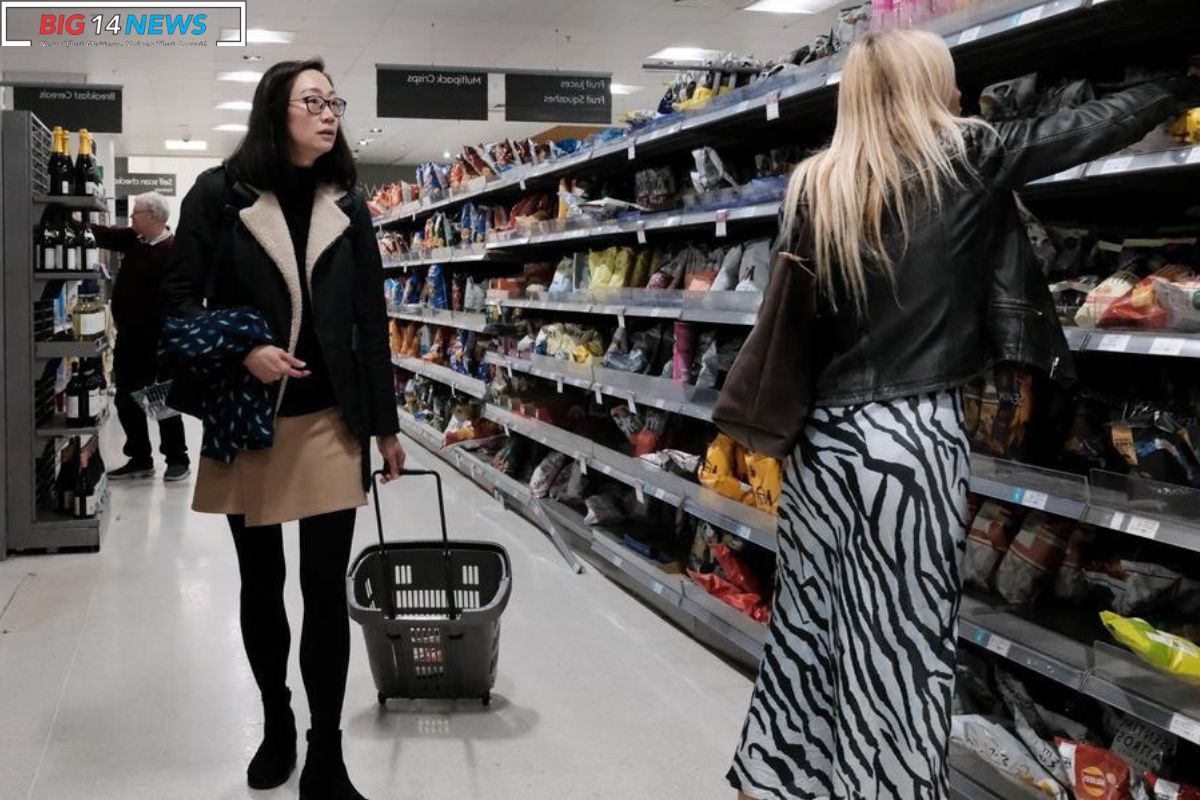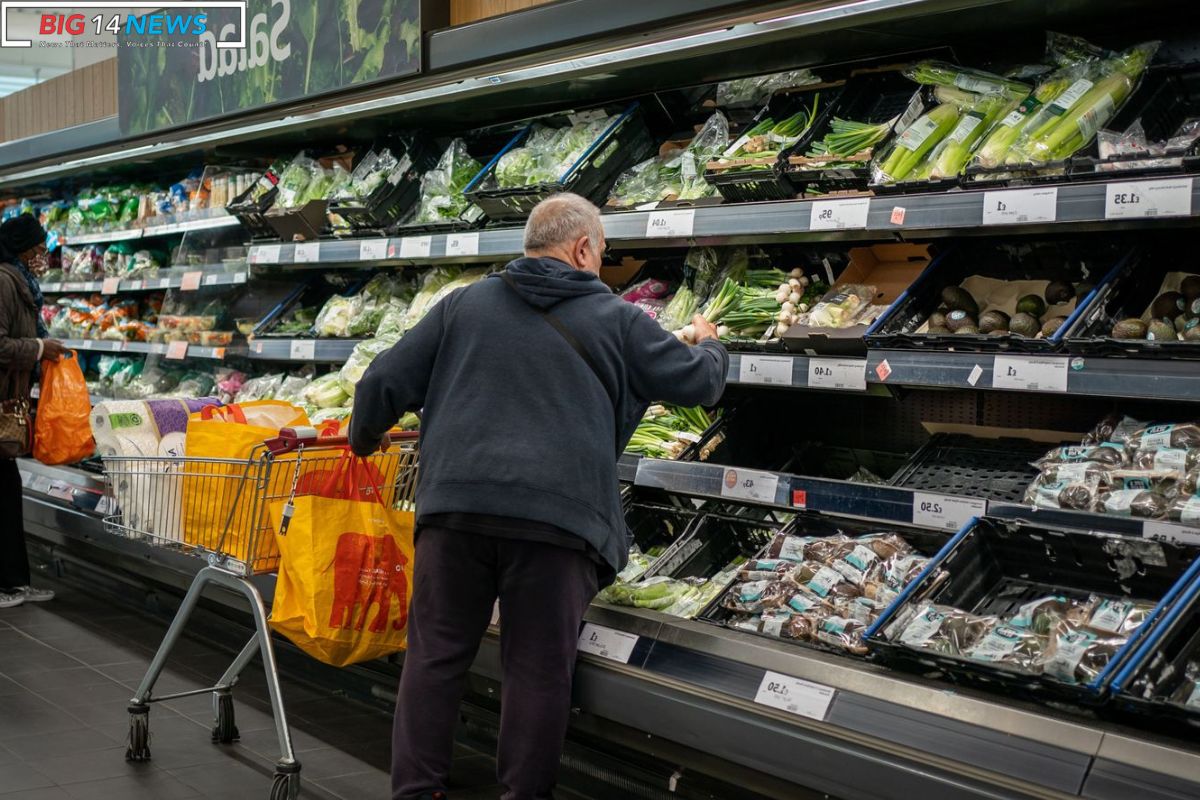Food Inflation Drops But Wage Growth Fails: A recent study shows that food inflation decreased from 13.4% in July to 11.5% in August. Even with this decrease, The latest ONS data shows inflation is higher than average total pay growth (8.2% from April to June). The rate of price increases for fresh food slowed to 11.6% this month, down from 14.3% in the previous month. This caused the store inflation to decrease. Helen Dickinson, CEO of BRC, warns that supply chain risks and rate hikes may hinder further price reductions.
The inflation rate for “ambient” foods decreased from 12.3% in July to 11.3% in August. non-food prices remained steady at 4.7%. In the year leading up to August, retail prices increased by 6.9%, lower than the 8.4% rise in July. Prices rising slower doesn’t mean things are cheaper. “It’s good news for shoppers that shop prices rose less in August than in October 2022,” said Dickinson.
Data indicates lower inflation was primarily due to slower price increases in fresh food items such as meat, potatoes, and cooking oils. Helen Dickinson stated that with the recent alcohol tax increase, the numbers would be higher. Toiletries and makeup have become cheaper, preventing price increases. As summer sales ended, clothing and shoe prices increased.
“Retailers’ efforts are reducing inflation, but supply chain risks remain,” Dickinson warned. She noted that the geopolitical situation, including Russia’s withdrawal from the Black Sea Grain Initiative and attacks on Ukrainian grain plants, along with poor harvests in Europe, may cause inflation rates to rise.


ALSO READ: Heatwave Crisis in Tampa Bay: Disparity in Tree Coverage Affects Public Health
Starting next April, business rates could increase by £400 million, causing concern. Without action from the chancellor, Dickinson warned that these costs could hinder the fight against inflation. The study comes as lawmakers and economists discuss curbing inflation while supporting economic growth and stability.
Retail price inflation is slowing, which may relieve consumers, but rates remain higher than wage growth, causing financial stress. Despite lower inflation rates, the BRC and experts claim that retail price increases remain high, impacting family budgets. The wage growth and inflation rate difference concern policymakers amidst existing economic issues. The latest report shows food prices decreasing, but inflation, wage growth, and economic policy remain complex and interconnected.
Also Read: Eminem Pulls Music from Vivek Ramaswamy: Republican Campaign: An Unfolding Copyright Conflict
Our Reader’s Queries
Why wage growth is not keeping up with inflation?
Wage growth in key sectors such as education, health services, and professional services has been eroded by inflation. Even manufacturing and financial services have struggled to keep pace with rising prices. Construction wages are barely keeping up with inflation.
Can wages increase without inflation?
At present, wages do not always go up as inflation rises. The Federal minimum wage does not go up according to inflation, and businesses can choose whether or not to raise salaries above the minimum wage. The debate over whether wages should rise alongside inflation is a profound economical issue.
Are wages not keeping up with inflation in 2023?
Numerous employees are expressing dissatisfaction with their wages not keeping up with inflation. Even those who got a raise were less likely than last year to feel their income was keeping pace with or surpassing inflation, with only 36% saying so in Bankrate’s 2023 survey compared to 39% in 2022.
Does inflation cause real wages to decrease?
As inflation rises, investment drops, and the amount of capital decreases over time. Even though consumption may also go down, it doesn’t directly affect the accumulation of capital. The decrease in capital stock reduces GDP and makes workers less productive. As a result, the demand for labor goes down and real wages decrease.

